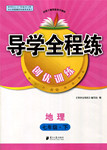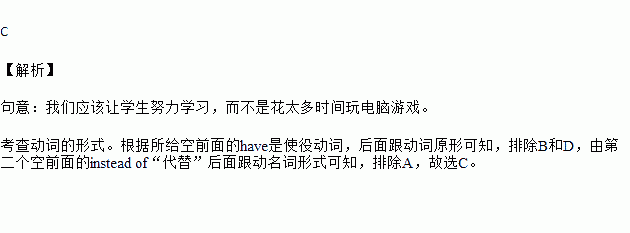题目内容
We should have our students ___ hard instead of___ too much time playing computer games.
A.work; spend B.to work; spend C.work; spending D.to work; spending
 导学全程练创优训练系列答案
导学全程练创优训练系列答案阅读理解
Last vacation,Linda went to New York with her family.She had great fun there. |
Day 1 I went to New York with my family on vacation.It was sunny and warm.Everything was so great here!People call New York “the city that never sleeps”.Another popular name for it is “the Big Apple”.First we went to Central Park.It was really wonderful.Then we went to Times Square(时代广场). |
Day 2 First we went to Empire State Building(帝国大厦),which is 381 meters high.We went right up to the top and looked out across New York.How fantastic it was!After that I bought the biggest hamburger I had ever seen!After lunch we went shopping. Although it is a big city,you can't get lost because most of the streets have numbers.For example,if you are in Thirty?fourth Street,it's easy to find Thirty?ninth Street. |
1.How was the weather on vacation?
A.It was windy. B.It was sunny.
C.It was cloudy. D.It was rainy.
2.Linda visited ________ on the second day on vacation.
A.Central Park B.New York Airport
C.Empire State Building D.Times Square
3.It's easy to find the way in New York because________.
A.visitors can go up to the top of Empire State Building and look out across the city
B.most of the streets have numbers
C.New York is a big city
D.it's full of people in the city
4.What's the best title for the passage?
A.Parks in New York B.Streets in New York
C.Buildings in New York D.A Trip to New York

